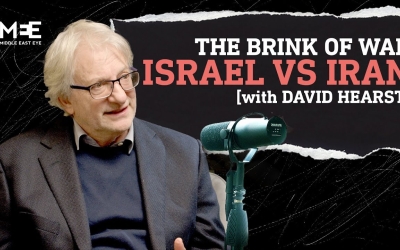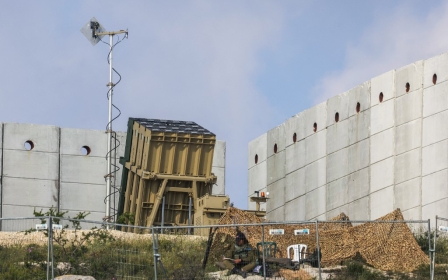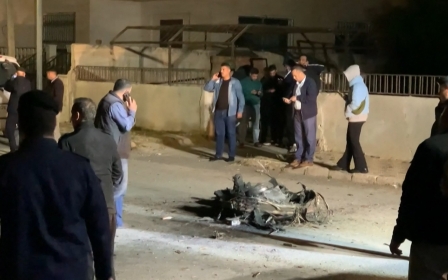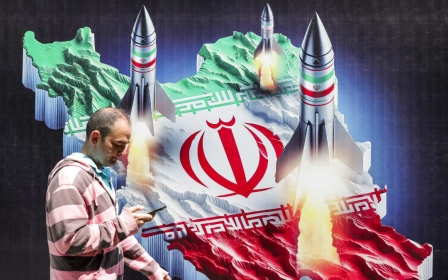Iranian press review: Social media users ridicule effectiveness of Israel attacks
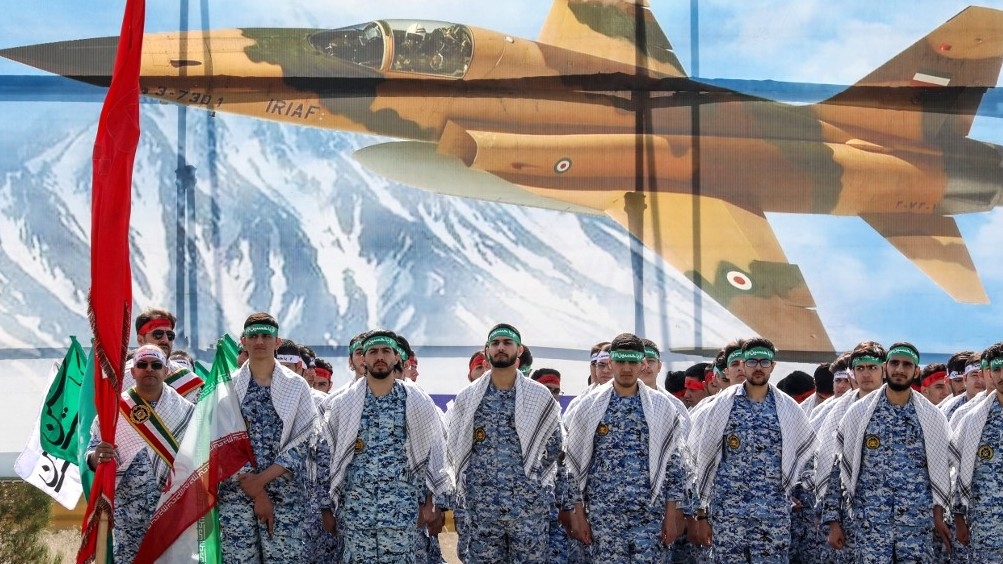
Iranians mock attacks on Israel as ineffective
While politicians worldwide expressed either condemnation or support for Iran's recent attacks on Israel, many Iranians took to social media to mock the advance notice given to other countries prior to the attacks.
On Saturday night and early Sunday morning, Iran’s Islamic Revolutionary Guard Corps (IRGC) targeted Israel with over 300 drones and missiles, but officials in the region had been informed about the assault 72 hours in advance.
On Sunday, Iran’s Foreign Minister Hossein Amir-Abdollahian said that Tehran informed its neighbours about the attacks against Israel, as well as informing Washington that its attacks would be "limited" and for self-defence.
This prompted many ordinary Iranians to question the nature of the retaliation that officials said was in response to the killing of high-ranking IRGC commanders in Syria earlier this month.
Shahab Baradaran, a software developer in Tehran, wrote on the X social media platform: “The Iranian government’s attack was like a chess player who thinks out loud, saying: 'Well, I’ll move this pawn forward! Now I’ll put this knight in the centre so that if the bishop comes, I’ll check! Oh, I don't know what to do now! So, I’ll castle to see what happens next!'”
Another Iranian social media user, Hadi Sarmadi, ridiculed the attack, as Israel and its allies were monitoring the drones hours before they arrived in Israel.
“What sort of attack is it if everyone knew about it? The establishment reported it before the missiles and drones hit! Israel, Britain, and America were waiting for them to arrive! A live show could be created from the movement of drones! Drones which were meant to be downed!” he wrote.
Other Iranians used humour, sharing Mr Bean images, to mock the purported inefficiency of the attacks, captioning them: "Israel, waiting for the drones."
Media crackdown amid Israel tensions
Iran's judiciary has summoned journalists and analysts to court and prosecuted outlets for "disrupting the psychological security of society", because of the articles and comments they published about Iran’s attacks against Israel.
On Monday, all Iranian media across the political spectrum praised the attacks in response to Israel’s deadly air raid against Iran’s consulate in Damascus. However, any public opposition to Iran’s response has been the target of a judicial crackdown.
The judicial system’s news agency, Mizan, reported that documentary director Hossein Dehbashi, political analyst Abbas Abdi, and journalist Yashar Soltani were among those summoned to court.
Iranian judicial authorities have also indicted the Jahan Sanat and Etemad dailies for articles published before the attacks, which warned about the consequences of such a military move.
The reason for prosecuting Dehbashi was a post on X after the attack on Israel, saying "Last night's attack was a show, insufficient and unsuccessful, and fuelled concerns about the country’s real defence capability."
Meanwhile, the Jahan-e Sanat daily has been summoned to court for an article published on Sunday expressing concerns about the economic consequences of the tension between Iran and Israel, and the fall of the stock market.
Iran’s judiciary announced that these actions were "in line with the legal duty of the judiciary to deal with those who disturb the psychological security of society".
The intelligence agency of the IRGC also issued a statement saying that it would take "decisive action" against those who support Israel online, urging citizens to report cases of support for Israel to the IRGC's cyber unit.
Violent return of morality police sparks anger
Iran’s Islamic morality police, or Gasht-e Ershad, have returned to the streets and, since Saturday, several videos have gone viral on Farsi social media showing the brutal arrest of women who defied the country’s obligatory hijab law.
Since the death of Mahsa Amini in morality police custody in September 2022, Gasht-e Ershad has been at the centre of attention. Shortly after Amini’s death, their operation was suspended. However, the return of the infamous branch of police to the streets has sparked criticism among many Iranians.
On Saturday, the Arman Meli daily wrote about the long history of unsuccessful implementation of the mandatory hijab law in Iran after the 1979 revolution, asking, “What was the result of all that?”
Iranian sociologist Ahmad Bokharaei also cast doubt on the effectiveness of forcefully implementing the hijab law, warning that the move would cause more damage to society.
“In the short term, some people may observe the hijab out of compulsion, fear, and threats, but eventually, it will create resentment and hatred in the hearts of the citizens and will have repercussions,” he said.
Reza Rashidpour, a renowned former TV presenter, also suggested that the new plan would have the same result as the previous ones, without any impact on enforcing the hijab law. “No matter how many thousand times you watch the same movie, the ending would be the same,” he wrote on X.
* Iranian press review is a digest of news reports not independently verified as accurate by Middle East Eye.
Middle East Eye propose une couverture et une analyse indépendantes et incomparables du Moyen-Orient, de l’Afrique du Nord et d’autres régions du monde. Pour en savoir plus sur la reprise de ce contenu et les frais qui s’appliquent, veuillez remplir ce formulaire [en anglais]. Pour en savoir plus sur MEE, cliquez ici [en anglais].


